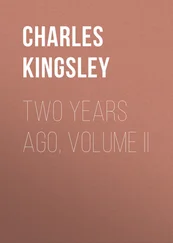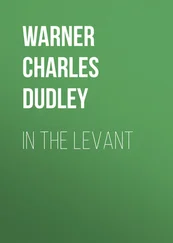Charles Warner - The Gilded Age / A tale of today
Здесь есть возможность читать онлайн «Charles Warner - The Gilded Age / A tale of today» весь текст электронной книги совершенно бесплатно (целиком полную версию без сокращений). В некоторых случаях можно слушать аудио, скачать через торрент в формате fb2 и присутствует краткое содержание. Год выпуска: 2004, Жанр: Классическая проза, на английском языке. Описание произведения, (предисловие) а так же отзывы посетителей доступны на портале библиотеки ЛибКат.
- Название:The Gilded Age / A tale of today
- Автор:
- Жанр:
- Год:2004
- ISBN:нет данных
- Рейтинг книги:3 / 5. Голосов: 1
-
Избранное:Добавить в избранное
- Отзывы:
-
Ваша оценка:
- 60
- 1
- 2
- 3
- 4
- 5
The Gilded Age / A tale of today: краткое содержание, описание и аннотация
Предлагаем к чтению аннотацию, описание, краткое содержание или предисловие (зависит от того, что написал сам автор книги «The Gilded Age / A tale of today»). Если вы не нашли необходимую информацию о книге — напишите в комментариях, мы постараемся отыскать её.
The Gilded Age / A tale of today — читать онлайн бесплатно полную книгу (весь текст) целиком
Ниже представлен текст книги, разбитый по страницам. Система сохранения места последней прочитанной страницы, позволяет с удобством читать онлайн бесплатно книгу «The Gilded Age / A tale of today», без необходимости каждый раз заново искать на чём Вы остановились. Поставьте закладку, и сможете в любой момент перейти на страницу, на которой закончили чтение.
Интервал:
Закладка:
Philip called Alice his good sister, and talked to her about love and marriage, meaning Ruth, as if sisters could by no possibility have any personal concern in such things. Did Ruth ever speak of him? Did she think Ruth cared for him? Did Ruth care for anybody at Fallkill? Did she care for anything except her profession? And so on.
Alice was loyal to Ruth, and if she knew anything she did not betray her friend. She did not, at any rate, give Philip too much encouragement. What woman, under the circumstances, would?
"I can tell you one thing, Philip," she said, "if ever Ruth Bolton loves, it will be with her whole soul, in a depth of passion that will sweep everything before it and surprise even herself."
A remark that did not much console Philip, who imagined that only some grand heroism could unlock the sweetness of such a heart; and Philip feared that he wasn't a hero. He did not know out of what materials a woman can construct a hero, when she is in the creative mood.
Harry skipped into this society with his usual lightness and gaiety. His good nature was inexhaustible, and though he liked to relate his own exploits, he had a little tact in adapting himself to the tastes of his hearers. He was not long in finding out that Alice liked to hear about Philip, and Harry launched out into the career of his friend in the West, with a prodigality of invention that would have astonished the chief actor. He was the most generous fellow in the world, and picturesque conversation was the one thing in which he never was bankrupt. With Mr. Bolton he was the serious man of business, enjoying the confidence of many of the monied men in New York, whom Mr. Bolton knew, and engaged with them in railway schemes and government contracts. Philip, who had so long known Harry, never could make up his mind that Harry did not himself believe that he was a chief actor in all these large operations of which he talked so much.
Harry did not neglect to endeavor to make himself agreeable to Mrs. Bolton, by paying great attention to the children, and by professing the warmest interest in the Friends' faith. It always seemed to him the most peaceful religion; he thought it must be much easier to live by an internal light than by a lot of outward rules; he had a dear Quaker aunt in Providence of whom Mrs. Bolton constantly reminded him. He insisted upon going with Mrs. Bolton and the children to the Friends Meeting on First Day, when Ruth and Alice and Philip, "world's people," went to a church in town, and he sat through the hour of silence with his hat on, in most exemplary patience. In short, this amazing actor succeeded so well with Mrs. Bolton, that she said to Philip one day,
"Thy friend, Henry Brierly, appears to be a very worldly minded young man. Does he believe in anything?"
"Oh, yes," said Philip laughing, "he believes in more things than any other person I ever saw."
To Ruth, Harry seemed to be very congenial. He was never moody for one thing, but lent himself with alacrity to whatever her fancy was. He was gay or grave as the need might be. No one apparently could enter more fully into her plans for an independent career.
"My father," said Harry, "was bred a physician, and practiced a little before he went into Wall street. I always had a leaning to the study. There was a skeleton hanging in the closet of my father's study when I was a boy, that I used to dress up in old clothes. Oh, I got quite familiar with the human frame."
"You must have," said Philip. "Was that where you learned to play the bones? He is a master of those musical instruments, Ruth; he plays well enough to go on the stage."
"Philip hates science of any kind, and steady application," retorted Harry. He didn't fancy Philip's banter, and when the latter had gone out, and Ruth asked,
"Why don't you take up medicine, Mr. Brierly?"
Harry said, "I have it in mind. I believe I would begin attending lectures this winter if it weren't for being wanted in Washington. But medicine is particularly women's province."
"Why so?" asked Ruth, rather amused.
"Well, the treatment of disease is a good deal a matter of sympathy. A woman's intuition is better than a man's. Nobody knows anything, really, you know, and a woman can guess a good deal nearer than a man."
"You are very complimentary to my sex."
"But," said Harry frankly; "I should want to choose my doctor; an ugly woman would ruin me, the disease would be sure to strike in and kill me at sight of her. I think a pretty physician, with engaging manners, would coax a fellow to live through almost anything."
"I am afraid you are a scoffer, Mr. Brierly."
"On the contrary, I am quite sincere. Wasn't it old what's his name that said only the beautiful is useful?"
Whether Ruth was anything more than diverted with Harry's company, Philip could not determine. He scorned at any rate to advance his own interest by any disparaging communications about Harry, both because he could not help liking the fellow himself, and because he may have known that he could not more surely create a sympathy for him in Ruth's mind. That Ruth was in no danger of any serious impression he felt pretty sure, felt certain of it when he reflected upon her severe occupation with her profession. Hang it, he would say to himself, she is nothing but pure intellect anyway. And he only felt uncertain of it when she was in one of her moods of raillery, with mocking mischief in her eyes. At such times she seemed to prefer Harry's society to his. When Philip was miserable about this, he always took refuge with Alice, who was never moody, and who generally laughed him out of his sentimental nonsense. He felt at his ease with Alice, and was never in want of something to talk about; and he could not account for the fact that he was so often dull with Ruth, with whom, of all persons in the world, he wanted to appear at his best.
Harry was entirely satisfied with his own situation. A bird of passage is always at its ease, having no house to build, and no responsibility. He talked freely with Philip about Ruth, an almighty fine girl, he said, but what the deuce she wanted to study medicine for, he couldn't see.
There was a concert one night at the Musical Fund Hall and the four had arranged to go in and return by the Germantown cars. It was Philip's plan, who had engaged the seats, and promised himself an evening with Ruth, walking with her, sitting by her in the hall, and enjoying the feeling of protecting that a man always has of a woman in a public place. He was fond of music, too, in a sympathetic way; at least, he knew that Ruth's delight in it would be enough for him.
Perhaps he meant to take advantage of the occasion to say some very serious things. His love for Ruth was no secret to Mrs. Bolton, and he felt almost sure that he should have no opposition in the family. Mrs. Bolton had been cautious in what she said, but Philip inferred everything from her reply to his own questions, one day, "Has thee ever spoken thy mind to Ruth?"
Why shouldn't he speak his mind, and end his doubts? Ruth had been more tricksy than usual that day, and in a flow of spirits quite inconsistent, it would seem, in a young lady devoted to grave studies.
Had Ruth a premonition of Philip's intention, in his manner? It may be, for when the girls came down stairs, ready to walk to the cars; and met Philip and Harry in the hall, Ruth said, laughing,
"The two tallest must walk together" and before Philip knew how it happened Ruth had taken Harry's arm, and his evening was spoiled. He had too much politeness and good sense and kindness to show in his manner that he was hit. So he said to Harry,
"That's your disadvantage in being short." And he gave Alice no reason to feel during the evening that she would not have been his first choice for the excursion. But he was none the less chagrined, and not a little angry at the turn the affair took.
Читать дальшеИнтервал:
Закладка:
Похожие книги на «The Gilded Age / A tale of today»
Представляем Вашему вниманию похожие книги на «The Gilded Age / A tale of today» списком для выбора. Мы отобрали схожую по названию и смыслу литературу в надежде предоставить читателям больше вариантов отыскать новые, интересные, ещё непрочитанные произведения.
Обсуждение, отзывы о книге «The Gilded Age / A tale of today» и просто собственные мнения читателей. Оставьте ваши комментарии, напишите, что Вы думаете о произведении, его смысле или главных героях. Укажите что конкретно понравилось, а что нет, и почему Вы так считаете.












